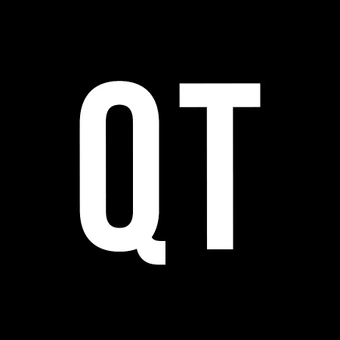Senior Security Software Engineer

Microsoft
Senior Security Software Engineer
Dublin, Ireland
Save
Overview
Security represents the most critical priorities for our customers in a world awash in digital threats, regulatory scrutiny, and estate complexity. Microsoft Security aspires to make the world a safer place for all. We want to reshape security and empower every user, customer, and developer with a security cloud that protects them with end to end, simplified solutions. The Microsoft Security organization accelerates Microsoft’s mission and bold ambitions to ensure that our company and industry is securing digital technology platforms, devices, and clouds in our customers’ heterogeneous environments, as well as ensuring the security of our own internal estate. Our culture is centered on embracing a growth mindset, a theme of inspiring excellence, and encouraging teams and leaders to bring their best each day. In doing so, we create life-changing innovations that impact billions of lives around the world.
Are you passionate about building secure, intelligent systems that identify threats before adversaries do? Do you want to shape the future of security building on AI tools? Our team, IDSEC AI, is on a mission to scale proactive security across Microsoft’s products by unifying vulnerability identification and exploit detection. We’re building systems that combine AI, large-scale code and binary analysis, and real-time intelligence to find and mitigate security issues across the software supply chain. We are looking for a Senior Software Engineer with a strong foundation in AI and security to help design and deliver scalable systems that operate across millions of assets and billions of signals. You'll be working at the intersection of secure software engineering, advanced detection, and practical AI—enabling defenders to stay ahead of the threat curve. If you’ve ever wanted to build secure-by-design systems with the latest in machine learning, large language models, and static/dynamic analysis at cloud scale—this is your opportunity.
Microsoft’s mission is to empower every person and every organization on the planet to achieve more. As employees we come together with a growth mindset, innovate to empower others, and collaborate to realize our shared goals. Each day we build on our values of respect, integrity, and accountability to create a culture of inclusion where everyone can thrive at work and beyond.
#MSFTSecurity, #Hiring #SeniorEngineer #AIEngineering #CyberSecurity #ExploitDetection #SecureCoding #MicrosoftAI #Azure #JoinOurTeam #FutureOfWork #BuildWithPurpose
Qualifications
Required Qualifications
- Relevant experience in the software development lifecycle, distributed systems, cloud services, large-scale computing, modeling, cybersecurity, and/or anomaly detection
- OR a Master’s Degree in Statistics, Mathematics, Computer Science, or a related field
- Proficiency in one or more modern programming languages such as C#, Python, Go, or Rust
- Experience working with large-scale data processing pipelines or AI/ML inference systems
- Strong understanding of security fundamentals, including secure coding practices, authentication/authorization, and common vulnerability classes (e.g., memory corruption, IDOR, SSRF)
- Demonstrated ability to deliver secure, high-quality code in a fast-paced environment
Preferred Qualifications
- Experience applying AI to code (e.g., code understanding, analysis, or generation)
- Background in ML model evaluation, interpretability, or adversarial robustness
- Experience with Azure or other cloud platforms
- Familiarity with modern CI/CD pipelines, secure software supply chain practices, and SBOM tooling
- Experience in building or scaling systems for vulnerability management, security automation, or detection engineering
Responsibilities
-
Conducting Research
- Identifies, conducts, and supports others in conducting research into critical security areas, such as competitor products, current attacks, adversary tracking, and academic literature. Partners cross-functionally (e.g., across disciplines, teams, or security versus non-security) to design solutions to prevent attacks. Designs lead to engineering projects. Investigates business-critical security issues (e.g., root cause, motivation, and impact). Advocates priorities. Elevates findings appropriately to address and mitigate issues. Solicits feedback and evaluates results to incorporate into future research. Demonstrates judgment in identifying projects and priorities (e.g., what to test and pursue). Understands interplay across Microsoft technologies and how they give rise to attacker opportunities.
- Drives the evolution of security research by building intelligent tooling and agentic systems that scale across Microsoft’s ecosystem. Enables autonomous threat detection, mitigation, and response, transforming manual workflows into adaptive, self-healing processes.
- Works with others to synthesise research findings into recommendations for mitigation of security issues. Shares across teams. Drives change within team based on research findings. Contributes to professional community through publications.
- Analyses complex issues using multiple data sources to develop insights and identify security problems and threats. Creates new solutions to mitigate security issues. Makes trade-offs to balance security and operational needs. Identifies and recommends process improvements and adopts best practices. Leverages the work of others to improve existing processes. Helps to drive resolution to systemic security issues through cross-team collaboration. Anticipates previously unknown potential artefacts that could be present in data as indicators of attacker activity. May contribute to professional community through conference and forum presentations.
- Recommends prioritisation and validation methods for technical indicators. Synthesises threat data to generate trends, patterns and insights that align to intelligence requirements or customer requests. Reviews findings and identifies nuanced variants. Designs and develops scalable automation pipelines and agentic systems to accelerate threat analysis, variant detection, and mitigation workflows. Leverages AI-driven agents to autonomously triage, correlate, and respond to emerging threats.
- Leads efforts to clean, structure, and standardise data and data sources. Leads data quality efforts to ensure timely and consistent access to data sources. Curates sources of data and partners to develop and sustain data access across teams. Incorporates new data sources consistent with corporate data privacy standards.
- Takes product schedules, dependencies and risk assessments into consideration in performing security design and analysis. Creates a schedule for analysis of large feature areas that accounts for dependencies and meets milestones. Conducts security research of Microsoft and competitor products. Researches, analyses, and summarises security threats and shares with security assurance and security tooling teams as enhancements to the security compliance programme.
- Identifies, prioritises, and targets complex security issues that cause negative impact to customers. Creates and drives adoption of relevant mitigations. Suggests and drives appropriate guidance, models, response, and remediation for issues. Drives automation-first approaches to mitigation, integrating agentic frameworks that adaptively respond to threat signals. Builds reusable tooling and autonomous agents that generalise across classes of security issues.
Solution Generation
- Identifies, prioritises, and targets complex security issues that cause negative impact to customers. Creates and drives adoption of relevant mitigations. Suggests and drives appropriate guidance, models, response, and remediation for issues. Drives programme and process of mitigation through automation.
- Solves classes of issues systematically and with transparency to customers in technical implementation and automation of solutions related to specific kinds of security issues (e.g., signature detection, malware, threat analysis, reverse engineering). Begins to develop substantial skills in other kinds of security issues outside areas of expertise. Works across disciplines to build improvements in solutions and methods. Uses results from research and experimentation to drive architecture or product direction for Microsoft.
- Collaborates with engineering teams to embed agentic capabilities into security products, enabling continuous learning and self-improving defences.
- Engages with customers and partners to improve security issues. Analyses security issues or patterns. Advocates for customers and partners. Develops feedback channels and translates feedback into better security practices. Escalates issues as needed. Fosters adoption of security features (e.g., multi-factor authentication [MFA]). Develops and provides guidance and education that result from resolution of security issues.
Orchestration
- Helps to make connections and assist in developing agreements between groups to clarify priorities and identify dependencies. Provides coordination across groups. Articulates key security issues to teams and to upper management. Autonomously drives coordination and collaboration across teams. Participates in internal or external collaboration in representing Microsoft's interests.
- Leads the development and deployment of internal tooling platforms that support agentic workflows, including automated incident response, telemetry enrichment, and security posture evaluation.
- Protects tools, techniques, information, and results of security practices. Assesses efficacy of operational security (e.g., red-on-red pen testing). Develops new techniques to evaluate operational security. Teaches others to master techniques.
- Effectively manages multiple workstreams and resources during incidents, applies diagnostic expertise, provides guidance to other engineers working to mitigate and resolve issues, and maintains a commitment to the quality of products and services throughout the lifecycle. Ensures proper notes from incidents are documented and drives the execution of quality postmortem and root cause analysis processes across teams. Performs analysis of historical incident data to identify trends, patterns, and issues that should be addressed at high priority.
- Leads large-scale security reviews. Leads work on architectural and design security reviews for feature areas. Where appropriate, ensures best practices for security architecture, design and development are in place. Measures return on investment (ROI). Determines value of investment. Measures customer satisfaction. Evaluates security risks and their impact to the affected services and works with DevOps leads, engineering leads and researchers to mitigate risks. Monitors and responds to security events, potential vulnerabilities, exposures, and policy compliance issues.
Industry Leadership
- Uses subject matter expertise to identify potential security issues, tools, mitigations, and processes (e.g., architecture, failure modes, attack chain, threat modelling, vulnerabilities). Stays current in knowledge and expertise as the security landscape evolves. Makes expertise available to others and drives change through sharing, coaching, conferences, and other means. Coaches and mentors others in area of expertise. Models appropriate risk-taking and ethical behaviour.
- Uses business knowledge and technical expertise to assist with analysing the work of the team to identify potential tools to assist future vulnerability analyses. Helps define deployment best practices and security configuration standards to ensure technologies are deployed in a secure fashion. Researches and maintains deep knowledge of industry trends, technologies, tools, securities, and advances.
- Influences the broader security community by advocating for agentic approaches to threat detection and response, contributing to the evolution of autonomous security standards.

